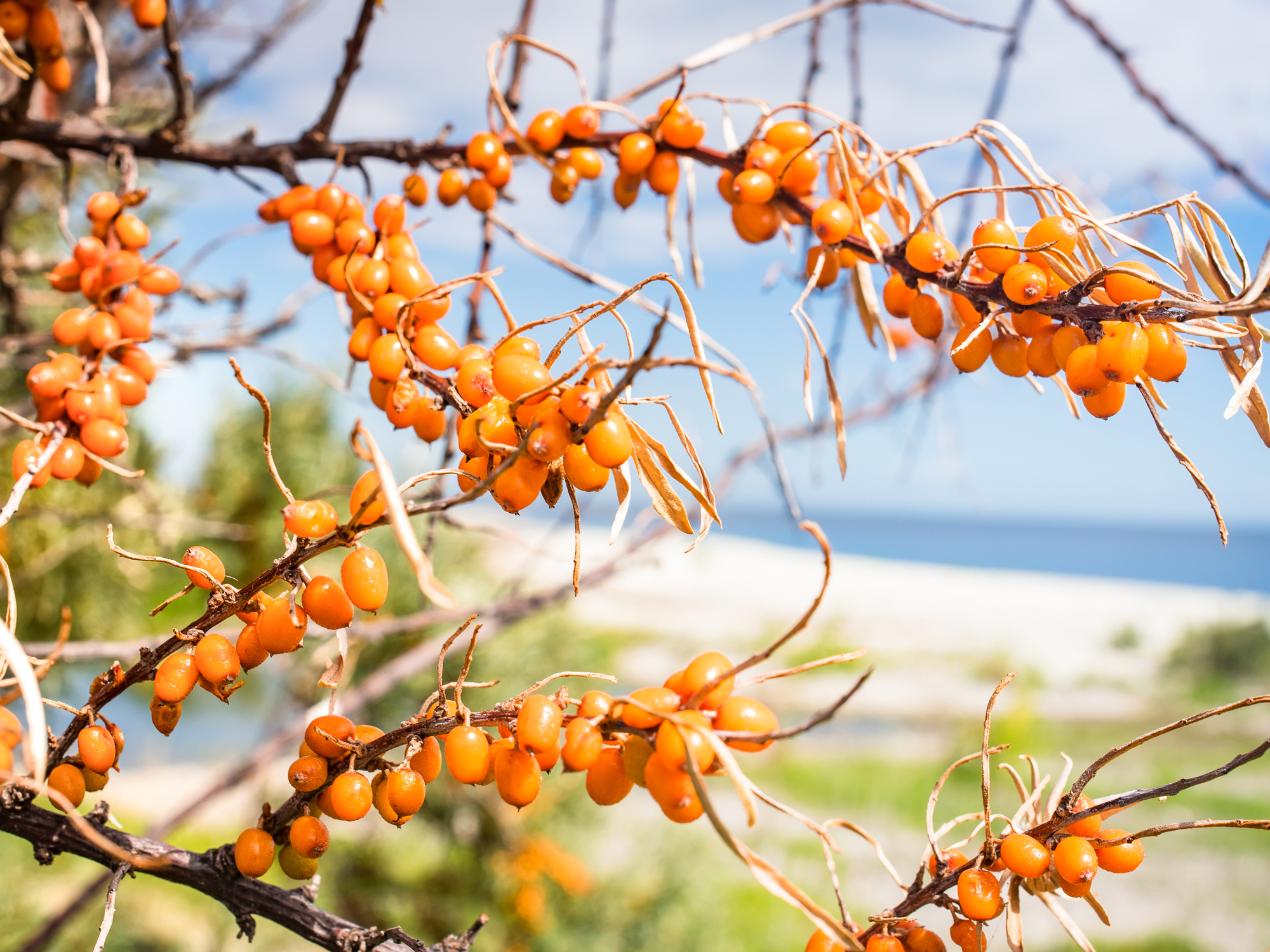Get Easy Health Digest™ in your inbox and don’t miss a thing when you subscribe today. Plus, get the free bonus report, Mother Nature’s Tips, Tricks and Remedies for Cholesterol, Blood Pressure & Blood Sugar as my way of saying welcome to the community!
Ancient berry wards off cancer, stroke and heart disease

Kale, chia seeds, spirulina, wheatgrass, blueberries — they’ve all been hailed as superfoods.
And like many, you may have jumped on the superfood bandwagon, welcoming their nourishing influences on your body.
Don’t be embarrassed about that! We all do it because we want a magic food or pill that can protect us against an onslaught of illness and disease… or, at the very least, help enhance our physical or mental performance each and every day.
And one such superfood you may have heard little about — that seems to fight almost every ailment — is the sea buckthorn berry.
Sea buckthorn is the perfect example of how everything old is new again…
For the past five decades sea buckthorn has been used to:
- Fight inflammation
- Treat radiation damage
- Remedy severe burns
- Prevent weight gain and assist weight loss
- And treat skin conditions such as eczema, psoriasis and dermatitis
But when a new superfood is being discovered every other day, sometimes we forget about the tried and true ones. So let me help you rediscover sea buckthorn…
Cancer yields to this superfruit
The major factor that gives something “superfood” status is a high level of nutritional quality that affords disease protection. And a recent scientific exploration into sea buckthorn’s nutrient profile reveals why it’s worthy of its superfood title…
The synergistic effect of all of sea buckthorn’s compounds and nutrients combined, provide potent cellular antioxidant activity… enough to inhibit the initiation and spread of cancer cells and actually cause apoptosis (cell death), especially in breast, colon and liver cancers.
Why does it pack such a punch against cancer? Because it’s full of…
- 15 phenolic compounds at super high levels! In particular, the flavonoids rutin and quercetin — both powerhouses for heart and blood vessel health — and kaempferol and myricetin — both major cancer fighters — account for 74 to 85 percent of the protective plant compounds found in sea buckthorn.
- Super high concentrations of antioxidants vitamin C and E (up to 2500 mg per 100 g), along with vitamins A, B1, B2, and K, and minerals potassium, magnesium, zinc and fat-burning copper.
Heart health home run
If your main concern is cardiovascular health, sea buckthorn really hits a homerun here too…
That because is contains potent levels of essential fatty acids — oleic acid (also found in olive oil), linoleic acid (also found in grapeseed oil) and linolenic acid. These cancer-fighting oils also ward of heart disease and make up 70 percent of sea buckthorn’s composition.
It’s use as a traditional herbal remedy against heart attack and stroke date back to 900 AD. And in modern studies, sea buckthorn’s cardio-protective benefits have been demonstrated to help:
- Regulate high blood pressure and decrease arterial blood pressure
- Prevent cholesterol deposits and decrease blood lipids while increasing HDL
- Prevent immune cell alteration
- Prevent blood clots that lead to stroke
- Regulate fatty acids in blood platelets to prevent the formation of clusters that can lead to heart disease and stroke
So you see, sea buckthorn really is one of those food that deserves its superfood status — and, after all these years, it’s about time.
Using sea buckthorn
You have lots of choices about how to integrate sea buckthorn into your diet…
Sea buckthorn is a bush that produces a small edible orange berry. The oil of the berry is made into a supplement and can be taken internally or used topically.
The berry can also be made into a delicious jam…
And the leaves can be used to make a tea infusion.
But, it probably comes as no surprise that it’s not so easy to find sea buckthorn while browsing the grocery store aisle. Which means, a trip to the health food store might be on your agenda very soon.
Editor’s note: Did you know your body has a master hormone? If you keep it balanced you can say goodbye to your chances of heart diseases, cancer and stroke. Dr. Michael Cutler details exactly why this process works and how others are living longer and healthier than ever thought possible. Click here for a preview!
Sources:
- Guo R, et al. Comparative assessment of phytochemical profiles, antioxidant and antiproliferative activities of Sea buckthorn (Hippophaë rhamnoides L.) berries. — Food Chemistry. 2017;221:997-1003.
- Khan BA, et al. A Comprehensive Review of a Magic Plant: Hippophae rhamnoides. — Pharmacognosy Journal. 2010;2(16):65.
- Olas B. Sea buckthorn as a source of important bioactive compounds in cardiovascular diseases. — Food and Chemical Toxicology. 2016;19:199-204.
- Larmo PS, et al. Effects of sea buckthorn and bilberry on serum metabolites differ according to baseline metabolic profiles in overweight women: a randomized crossover trial. — Am J Clin Nutr. 2013.












